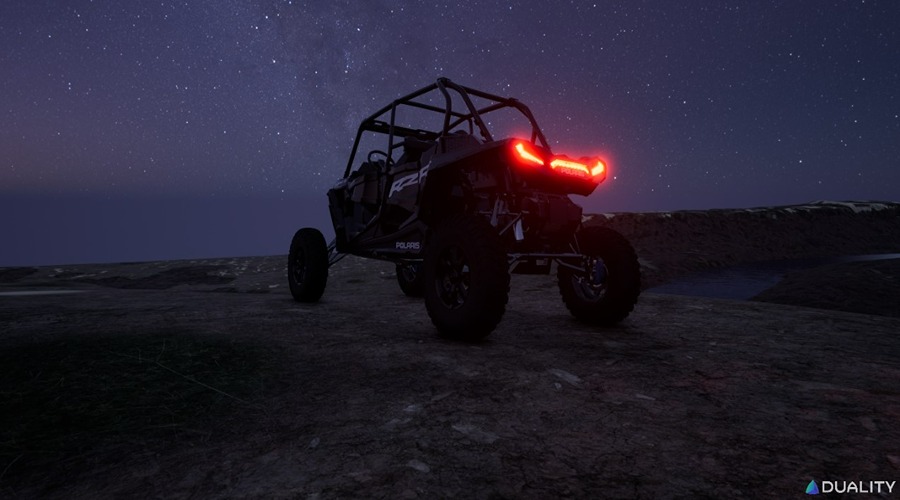
SAN MATEO, CA, May 27, 2025 – Duality AI has announced a partnership with Kitware to support the Defense Advanced Research Projects Agency’s (DARPA) Autonomy Standards and Ideals with Military Operational Values (ASIMOV) program. The goal of ASIMOV is to establish a framework to evaluate the ethical alignment of future autonomous systems with U.S. military operational values, including military ethics, the laws of war, and the commander’s intent.
The ASIMOV mission builds a framework to measure the ethical impact of AI and autonomous systems in complex situations. As these tools transition into daily life, the framework offers a way to review their ethical assessment. The program also has an Ethical, Legal, and Societal Implications (ELSI) advisory group (ELSI) advisory group. This group works on standardized language to assess the ethical conduct of autonomous systems.
Duality AI has joined Kitware as a contributor to the Reference Ethical Benchmark for Autonomy Readiness (REBAR) framework. A key component of REBAR is the use of Falcon, which enables simulation of autonomous system behavior and generates the data to evaluate system decisions against known ground truth. To support REBAR, Duality is providing digital twins representing environments, systems, and agents – including both human and vehicular models. These digital assets enable the generation of diverse, operationally relevant scenarios. Falcon integrates with autonomous system software, supporting in-the-loop simulations using synthetic data from virtual electro-optical, infrared, LiDAR, and RADAR sensors. Additionally, Falcon’s support for large language model (LLM) integration enhances the ability to construct varied and complex scenarios for testing and evaluation.
“High-quality synthetic data, without question, is vital to our project, but it’s Falcon’s flexibility that made it a perfect fit for REBAR,” says Dr. Arslan Basharat, assistant director at Kitware, and principal investigator on DARPA ASIMOV. “The REBAR approach leverages an LLM to execute expert-informed generation of hundreds of variations of any situation of interest. Falcon’s ability to integrate such LLMs will enable us to carry out rapid, procedural conversion of these generated situations into simulation-ready scenarios. This greatly reduces the barrier to testing autonomous systems in the wide variety of situations necessary to assess their ethical readiness in a military operational context.”
Since its founding, Duality has been championing digital twin simulation as the safe, ethical, and viable way for AI and autonomous systems to transition from the lab into the real world.

“Kitware’s team already has a proven reputation in ethical AI systems, and we’re thrilled to be partnering with them on the ASIMOV program,” says Apurva Shah, CEO of Duality AI. “From early on, Duality’s mission has been to build virtual worlds to solve real problems. During a time when everyone is understandably apprehensive about the role autonomous systems will play in our world, being able to contribute to the evolution of more ethical autonomy and AI is a critical pursuit. We’re honored that Falcon is playing a role in that.”
Duality is collaborating with a range of organizations – including Charles River Analytics, the University of Pennsylvania, Shadowbox LLC, David Barnes LLC, and Veraitech – under the ASIMOV program. The initiative aims to develop a reference framework for assessing military autonomous systems. If the project meets its objectives, it could contribute to the creation of standardized benchmarks that inform future evaluation protocols across the autonomy research and defense communities.
Source: Duality AI
About Duality AI

Duality AI specializes in digital twin simulation technology to support the safe and ethical deployment of AI and autonomous systems. The company develops Falcon, a high-fidelity digital twin simulation platform that models’ environments, systems, and agents, including humans and vehicles. These simulations enable detailed testing and validation of autonomous operations across industries such as automotive, aerospace, defense, and industrial automation. Duality AI integrates synthetic data from multiple sensor types to facilitate in-the-loop simulations and procedural scenario generation. Duality AI focuses on bridging the gap between laboratory development and real-world application of AI through simulation-based validation. The company’s multidisciplinary team includes engineers, simulation specialists, AI/ML experts, and technical artists, holding over 70 patents in robotics, simulation, and visualization.
About Kitware

Kitware, Inc., established in 1998, is an employee-owned software research and development firm based in Clifton Park, NY. The company focuses on open-source solutions and provides services in artificial intelligence, computer vision, scientific visualization, simulation, medical imaging, and software and data engineering. Kitware works with government, commercial, and academic institutions to develop tailored software that addresses complex scientific and technical problems. It is best known for maintaining widely used open-source platforms, including the Visualization Toolkit (VTK), ParaView, and CMake. Beyond development, Kitware offers technical support and training for its software tools. The company operates offices in North Carolina, New Mexico, Virginia, Minnesota, and France, supporting a global client base. As of 2025, Kitware employs around 155 staff and reports an annual revenue of approximately $35 million. Its work emphasizes technical rigor, transparency, and long-term collaboration, reflecting its commitment to open science and sustainable software development.
